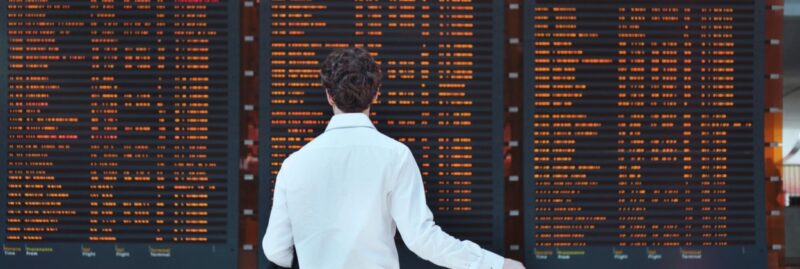Senate to Hold Hearing on Shutdown’s Impact on U.S. Aviation Safety

A Senate subcommittee will convene next week to examine how the recent 43-day government shutdown disrupted aviation safety and operations across the United States. The hearing, organized by the Senate Commerce, Science, and Transportation Committee’s aviation subcommittee, is scheduled for Wednesday Nov. 19 at 2:30 p.m. EST.
Testifying before the panel will be National Air Traffic Controllers Association (NATCA) President Nick Daniels, Airlines for America (A4A) President and CEO Chris Sununu, and General Aviation Manufacturers Association (GAMA) President Jim Viola.
Subcommittee Chair Sen. Jerry Moran (R-Kan.) said the hearing aims to assess both the short- and long-term effects of the shutdown on aviation workers and passengers. “The shutdown has severely impacted our already fragile aviation industry, and the system will take time to recover,” Moran said in a statement announcing the hearing. “I look forward to discussing how Congress can work with industry leaders to alleviate strain on air traffic controllers and TSA agents, while ensuring safety and operational stability for airlines, business, and general aviation.”
Shutdown Fallout on Aviation
The shutdown, which ended Wednesday Nov. 12, created widespread disruption across the national air travel system. Thousands of air traffic controllers and Transportation Security Administration (TSA) agents missed multiple paychecks, leading to higher absenteeism and reduced staffing levels. The Federal Aviation Administration (FAA) responded by restricting flight capacity at 40 high-traffic airports, initially cutting operations by 4% last Friday and increasing to 6% by Tuesday.
Transportation Secretary Sean Duffy and FAA Administrator Bryan Bedford announced Wednesday that reductions would be frozen at 6% after callouts among controllers began to decline. The restrictions were originally set to rise to 8% on Thursday and 10% on Friday.
Although the shutdown has ended, industry leaders warn that its effects will linger. Controllers will receive back pay, but NATCA President Daniels cautioned it could take months for employees to be fully compensated, as it did following the 2019 government shutdown. “It took roughly two months for controllers to be made whole last time,” Daniels said.
Long-Term Impacts and Safety Concerns
Transportation Secretary Duffy told CNN’s State of the Union on Sunday that the shutdown accelerated retirements among air traffic controllers. “Before the lapse, about four controllers were retiring per day,” he said. “During the shutdown, that number increased to 15 to 20 daily.” Duffy warned that the staffing crisis “will live on in air travel well beyond the time frame that this government opens back up.”
The shortage has already taken a toll on U.S. flight operations. As of Thursday afternoon, more than 1,300 flights within, into, or out of the country were delayed, with nearly 1,000 canceled, according to FlightAware. Another 380 cancellations are expected Friday as airlines continue adjusting schedules.
Industry Calls for Permanent Funding Protection
Airlines for America, the trade association representing major U.S. carriers, urged lawmakers to create a long-term funding solution that prevents aviation operations from being disrupted during future political standoffs. “We implore Congress to ensure future funding bills do not allow aviation to become collateral damage in Washington’s policy debates,” the group said in a statement Wednesday.
As lawmakers prepare for the hearing, the aviation sector is pushing for bipartisan reforms to safeguard critical safety operations — ensuring that essential personnel, including air traffic controllers and safety inspectors, remain funded even during government shutdowns.
Related News: https://airguide.info/?s=FAA, https://airguide.info/category/air-travel-business/travel-health-security/
Sources: AirGuide Business airguide.info, bing.com, thehill.com, cnn.com
